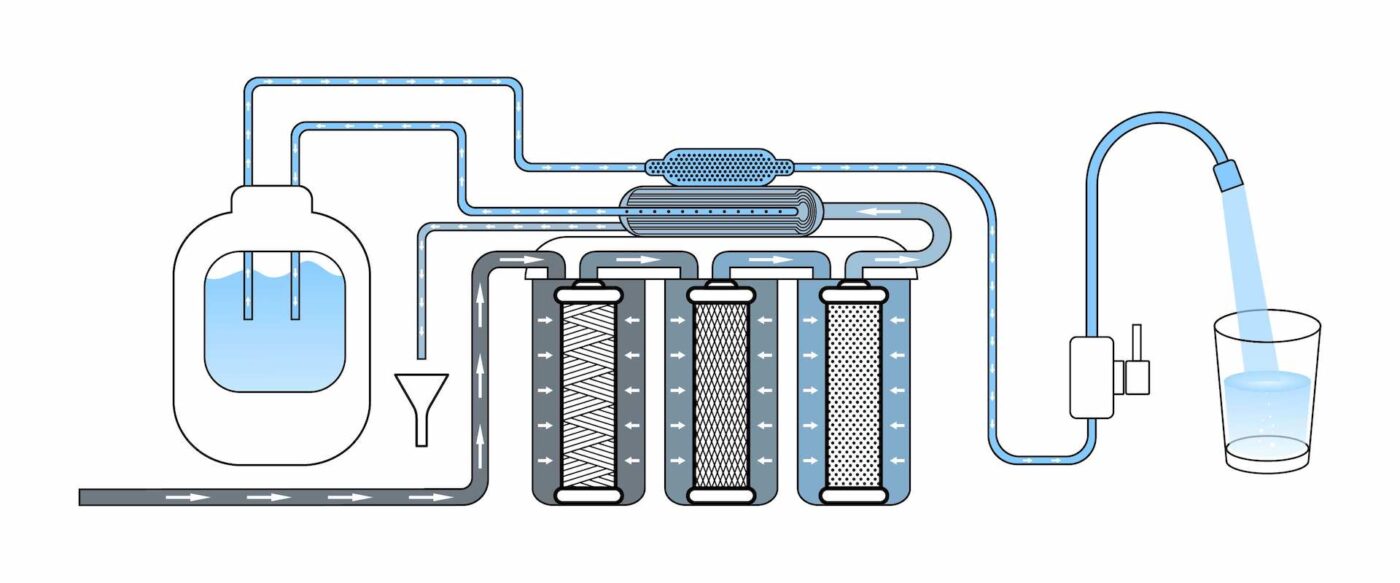Articles About Reverse Osmosis Systems
The Significance Of Water Filtration System And Contemporary Filtration Methods
The Significance Of Water Filtration System And Contemporary Filtration Methods
All big civilizations were set up near by water and they achieved greatest accomplishments through innovations, literature, science, law, and mathematics.
Egypt, India, Maya, Romans, each of these civilizations thrived thanks to the resources provided by the rivers on which they were founded. The waters of the Tigris and Euphrates, the Yellow River, the Nile, and the Ganges enabled them to grow into powerful societies.
Clean water is essential for your body’s functioning and healing. It helps flush out harmful substances, boosts metabolism, and reduces stress and fatigue, supporting cellular health. Drinking fresh water can also help lower cholesterol and balance alcohol levels in the body.
However, despite its crucial role in maintaining health and society, access to safe drinking water is increasingly challenging. Pollution and poor sanitation practices have contributed to water scarcity. Fortunately, advancements in technology and innovative products have made safe, affordable drinking water more accessible.
Water helps combat the risk of illness and acts as your primary defense against bacteria. Maintaining hydration and good health is crucial, especially during these challenging times of the ongoing pandemic. Finding the right filtration system for your family can be overwhelming, but with AURA CEBILON, you can discover the best products and services that meet your family’s needs.
Filtration Methods
For reliable access to safe drinking water, you can depend on filtration devices. Following are some popular examples available in the market:
1. Reverse Osmosis (RO):
Reverse osmosis is one of the most widely used and effective methods for purifying drinking water. Many purified water products on the market are filtered through this technology. Reverse Osmosis Systems have a very high effectiveness in removing protozoa (such as Cryptosporidium, Giardia), bacteria (like Campylobacter, Salmonella, Shigella, E. coli), and viruses (such as Enteric, Hepatitis A, Norovirus, Rotavirus). RO also “removes common chemical contaminants (like metal ions and salts), including sodium, chloride, copper, chromium, and lead.” However, the essential membrane filter in an RO system also filters out some beneficial minerals, resulting in slightly acidic water with a pH of 7.0 or below. To address this, AURA CEBILON RO systems include an additional alkaline remineralization filter, which restores healthy minerals and balances the pH, providing a more natural taste compared to standard RO filters.
2. Activated Carbon filters
Activated carbon filters are highly effective at removing contaminants such as arsenic, chlorine, nitrates, and fluoride from water, ensuring high-quality, odor-free drinking water. These filters are typically available in two forms: granular activated carbon (GAC) or carbon block. Carbon block filters are housed in a brick-shaped container filled with thousands of tiny carbon particles, allowing them to capture more dirt and contaminants from the water than GAC filters.
3. Water Distillation
Water distillation is one of the fundamental methods of water filtration. It relies on the processes of evaporation and condensation. This technique effectively removes contaminants like heavy metals and microorganisms that have higher evaporation points than water. However, it is unable to eliminate chlorine due to its volatile nature.
4. Water Deionization
Water deionization is an effective method for producing highly purified water with zero total dissolved solids (TDS). The resulting water is ideal for applications such as streak-free cleaning, aquariums, laboratories, dental and medical facilities, or any situation requiring ultrapure water. However, it is not recommended for drinking.



Related Posts
Forever Chemicals in Drinking Water: Why Aura Filtration Matters More Than Ever
Magnesium and Better Sleep: How Aura’s Mineral Filter Supports Your Wellbeing
What Is TDS in Water? Why It Matters and How to Measure It at Home